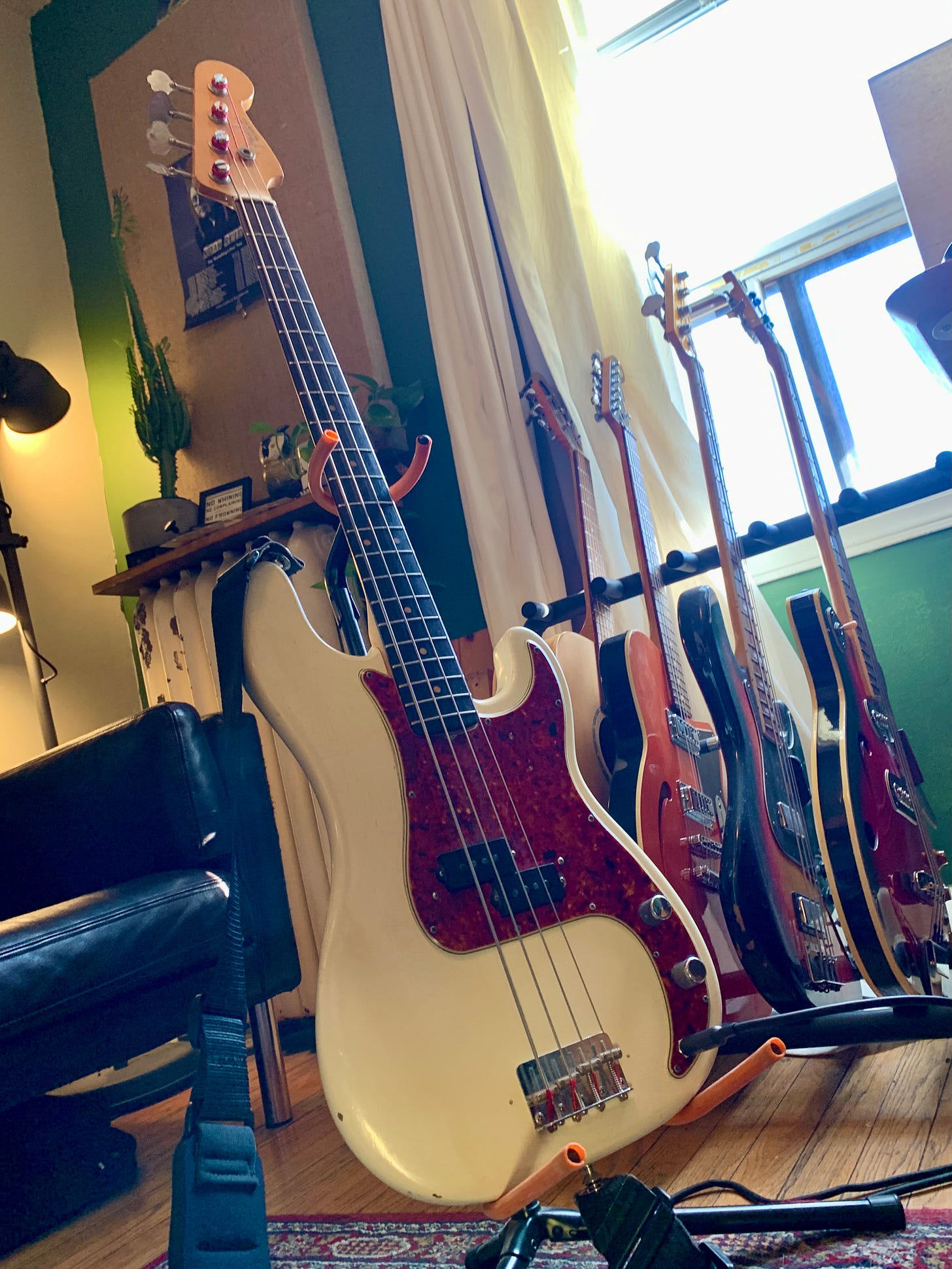What's your '64 Fender?
Investments as means AND ends
My pal Kurt just dropped some serious dough on a new bass guitar. But not just any guitar—a 1964 Fender Precision Bass:
This is the “holy grail” of bass guitars. They don’t make them like this anymore1.
It sat untouched under someone’s bed for a few decades.
But Kurt hasn’t been able to keep his hands off it since he got it a few weeks ago.
He played it for me the other day. His joy was palpable.
We humans love shiny new toys. But this guitar is so much more than that to Kurt.
It’s an investment.
It’s worth a lot of money. And Kurt got a killer deal on it. He could turn around tomorrow and sell it for two or three times what he paid for it. Musical instruments are a legitimate financial asset. People buy them with the expectation that they will appreciate in value over time. It’s not like they’re making any new ‘64 Fender guitars. Or Van Gogh paintings or bottles of 1945 Domaine de la Romanée-Conti.
But profit is not the “return on investment” or ROI that Kurt is looking for.
The guitar is an investment in himself and his future. He’s a professional musician and this instrument will allow him to do his job better. It’ll open doors to more session work. The thousands of hours he’ll spend playing it will make him a more skillful player.
A means and an end
Kurt's guitar made me realize I've been thinking about investments all wrong.
Investments are not just stocks or bonds or GIC’s or other places to grow your money for future use.
They are not just a means to an end.
Rather, they are both. A means and an end.
Kurt’s guitar brings him undeniable joy right now and promises only more of the same for years down the road.
Stocks and bonds might help finance a happy retirement, but they don’t do much for my happiness and well-being right now.
The investments that really count for me right now and will continue to pay dividends in the future are my relationships, health, spirituality, creative pursuits, experiences (e.g., travel, concerts, meals), professional development and self-knowledge.
The best investments don't just appreciate in value over time—they transform us along the way.
Kurt's ‘64 Fender P Bass could double in value over the next few decades. But this is mere pennies compared to what Kurt’s investment in himself will bring—creative inspiration, a sense of mastery, relationships forged with other musicians, moved audiences and so much more.
What investments are you making in becoming who you want to be? What’s your ‘64 Fender?
- The Buddh-i$h Investor
Take home points:
Investments that transform you: The most valuable investments aren't just financial assets, but things that change who you are - relationships, skills, experiences, creativity, and self-knowledge.
Investment as means and ends: The smartest investments serve dual purposes, bringing happiness now while also building toward future goals.
If you’re looking for more:
A thoughtful discussion of guitars as investments—there’s a whole section on pre-1965 Fenders
BassicallyKurt - My buddy Kurt (and his killer axe) on Instagram
Since 1965 to be precise. That’s the year that the CBS corporation bought Fender and guitar quality nose-dived (according to Fender lore).


